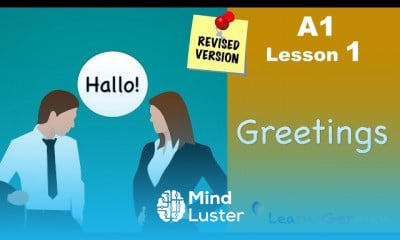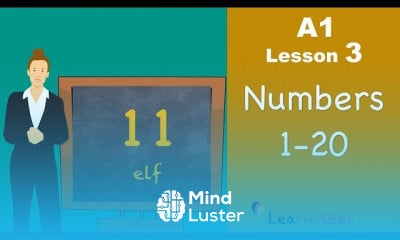English Conversation LISTEN AND PRACTICE | Real English Listening Conversation Practice
Share your inquiries now with community members
Click Here
Sign up Now
Lessons List | 41
Lesson
Show More
Lessons
Comments
Related Courses in Languages
Course Description
What do you mean by speaking?
1. Speak, converse, talk mean to make vocal sounds, usually for purposes of communication. To speak often implies conveying information and may apply to anything from an informal remark to a scholarly presentation to a formal address: to speak sharply; to speak before Congress.
THE FOUR SPEAKING SKILLS
FLUENCY. Fluency is about how comfortable and confident you are in speaking English. ...
VOCABULARY. Of course, if you don't have the words to say what you want to say, then you cannot say it. ...
GRAMMAR. The dreaded G word! ...
PRONUNCIATION.
It is a common desire for all of us to speak a second language well. To do this we need to know what skills are required to become a good speaker. This short article will help you to understand four important skills that you need to develop:
FLUENCY. Fluency is about how comfortable and confident you are in speaking English. If you can speak for an extended period of time, that is an indicator of strong fluency. It is also about showing a clear connection between each point that you are trying to make. This skill means that the listener can follow what you are saying and does not get lost.
VOCABULARY. Of course, if you don’t have the words to say what you want to say, then you cannot say it. Being a good speaker means constantly growing you’re vocabulary. The more interesting words you know, the stronger your speaking skills. The best way to grow your vocabulary is to read in English and make a note of any new words that you encounter in a vocabulary notebook.
GRAMMAR. The dreaded G word! Grammar does matter and the fewer mistakes you make, the better your speaking skill will be. However, do not worry about making mistakes either! A good speaker does not have to use perfect grammar. Certainly, though, it is a good idea to make sure that you have mastered the major tenses.
PRONUNCIATION. Pronunciation is a complex area, with a lot of sub skills that can be practiced. The basic rule of thumb is that an average speaker can speak and be understood. A skilled speaker can use the sub skills of pronunciation to emphasise and make the communicative effect of their speech more impactful. The sub skills of pronunciation include: word and sentence stress, intonation, rhythm and the use of the individual sounds of a language. A good way to practice your pronunciation is to copy! Simply listen to how someone with good pronunciation speaks, and try to imitate them as closely as possible.
Trends
Graphic design tools for beginners
Android App Development with Kotlin
Logo Design
Accounting Finance course
Figma for UX UI design
Advanced Logo design methods
Customizing type for logos
CMOS Logic Circuit Basics
Graphic Design | Photoshop
Accounting
Best zoology books
Graphic Design Basics
UX design career in 2025
Web Design Using HTML CSS
Web Design 101 Free Full Course
Financial Accounting
Illustrator for logo design beginners
Figma design basics for beginners
Illustrator poster design for beginners
Anatomy Physiology
Recent
Bioinformatics basics
Bioinformatics databases
Vitamin A to Z tablets
Best zoology books
Best cream for piles pain
Laser surgery for piles
Best cream for piles
Anal fissure treatment
Best antibiotics for diseases
Antibodies structure
Macrophage structure
Drosophila genetics
Diagnostic tests
Bioinformatics
Genetics
Gene therapy
Kidney structure
DNA replication and types
Bacterial cell structure
Parasite structure


















